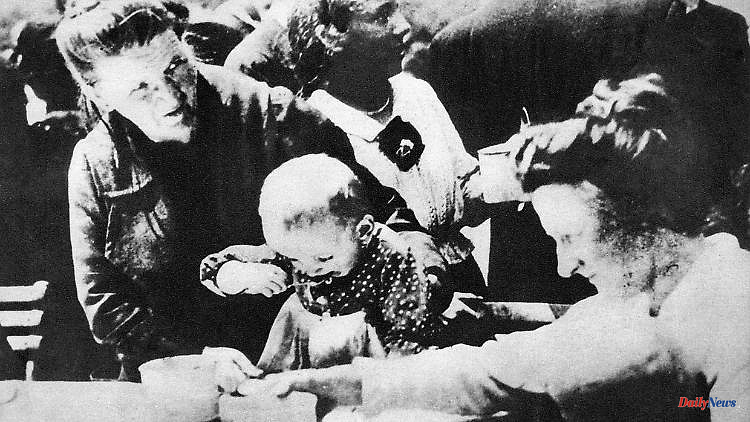The best nutrition for a baby is breastfeeding. That is scientifically proven. Industrially manufactured baby food is still progress, says a US historian and gives reasons on Twitter.
The United States has been experiencing a baby food crisis for weeks. The shortage of industrially manufactured infant formula has raised voices that breastfeeding with human milk would make these products obsolete. In this line of argument, reference is often made to the time before ready-to-eat food was invented, when breast milk was "sufficient". The discussion now brought the US historian Carla Cevasco onto the scene, who posted some comments on Twitter.
Cevasco, who is a professor of American Studies at Rutgers University-New Brunswick, begins her thread by saying that before the advent of modern commercial infant formula, all babies fed breast milk and everything was fine. "As a historian of infant nutrition, I want to tell you why that isn't true," she writes.
Basically, it was always the case that there were circumstances in which babies had to take something other than breast milk. The historian cites several possible reasons: the death or illness of the mother, the need to leave the house again shortly after the birth for gainful employment, or, for example, the intervention of slave owners who stopped breastfeeding in order to speed up further pregnancy to allow slaves. There are also physical circumstances that make feeding breast milk difficult or impossible. Babies can be poor drinkers or too weak to breastfeed when born prematurely. Certain disabilities also stand in the way of breastfeeding. Adoptive or foster parents are also denied it for obvious reasons.
As an alternative, there was the possibility, especially for richer people, that another woman would take over breastfeeding. However, these wet nurses were also mothers whose own children in many cases could no longer be adequately fed with breast milk. "So feeding the baby someone else's breast milk wasn't necessarily an ideal situation either, given the power dynamics of race, class and gender in the past," Cevasco said.
That is why there have always been efforts to feed babies with something other than breast milk. In the 18th century, the Wabanaki, Native Americans, fed their infants a mixture of cooked walnuts, cornmeal and water in these cases. In early modern Europe, too, babies often ate porridge or panada, mixtures of animal milk or water, breadcrumbs, or flour. "Sometimes they were cooked, sometimes not."
But these preparations were often contaminated with harmful germs and also did not contain enough nutrients for the infants. It is known from breast milk that the composition and nutrient density changes again and again and adapts to the respective needs of the baby.
Therefore, before modern baby food was invented, there was above all one reality. "Before modern infant formula existed, many infants died of disease or starvation because there was no safe or adequate food," writes Cevasco. These babies would have survived with access to safe, nutritious formula.
Cevasco emphasizes that she is not a fan of the baby food manufacturers and believes that better breastfeeding conditions for women are necessary. These include paid parental leave, which does not exist in the United States, free breastfeeding counselors and breastfeeding classes, access to rooms where mothers can express milk and the right to breastfeed in public.
In Germany, around 68 percent of mothers exclusively breastfeed their child after birth. According to the Ministry of Agriculture, the number drops significantly in the following months. After two months, just over half (57 percent) were still breastfeeding, and after four months (the recommended minimum breastfeeding duration for exclusive breastfeeding), only 40 percent were still breastfeeding.
In February, the World Health Organization (WHO) found in a study that baby food manufacturers are making false claims in their advertising in order to discourage women from breastfeeding and to encourage them to buy industrially produced baby food. At the time, Nigel Rollins, who is responsible for maternal and child health at the WHO, said the organization was not trying to ban baby food from store shelves. Some babies needed this food. The study is only about marketing methods that manipulate mothers who actually wanted and could breastfeed.












